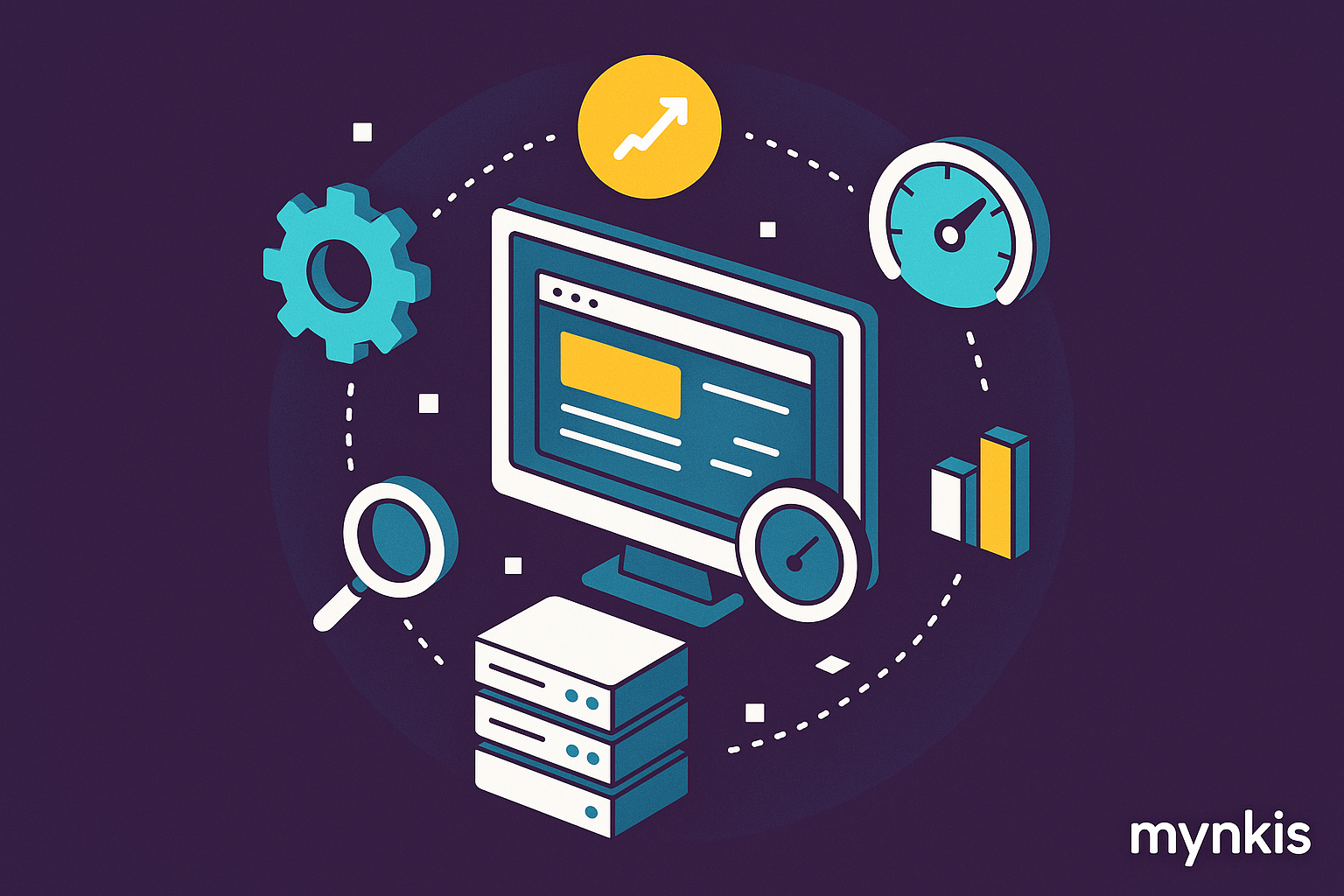Schedule a Demo
In my work with operations managers rolling out performance enhancement strategies, I've noticed many aim to improve website performance and conversion rates for owners who require booking functionalities. A website isn't merely about great design; it must be optimized technically to handle large volumes of user interactions smoothly. Let's explore the intricacies of technical optimization for supercharging software performance in enterprise web solutions.
There are several critical areas that contribute to overall performance in custom software development. These include speed, scalability, and reliability—all of which are fundamental for any business aiming to enhance user experience and organic search rankings.
One of the simplest yet most impactful ways to boost your website's performance is by focusing on speed optimization. Based on available research, the average page load time affects user behavior significantly. Strategies such as minifying code, leveraging browser caching, and optimizing images can cut load times dramatically, enhancing the user's booking experience. Remember, though, individual results may vary, so ongoing monitoring is key.
As discussed by Amazon engineers, scalability is vital for handling growth sustainably. A custom software development approach can architect your platform to scale effortlessly, whether it's dealing with occasional traffic spikes or consistent daily increases. This preparation ensures your website doesn't bog down as your business expands.
What does it mean to have a reliable software solution? Reliability means your website must function optimally at all times, particularly during peak hours. I often think about the importance of reliable e-commerce platforms during holiday seasons; even a brief outage can translate into missed opportunities. Comprehensive testing, along with tools like continuous integration and deployment (CI/CD), offers a robust layer of defense against potential downtimes, crucial for those engaged in enterprise web solutions.
Content Delivery Networks have become indispensable for enhancing performance across geographies. By distributing your site's content across multiple, strategically located servers, CDNs help reduce latency and thereby accelerate page loads. This solution can be particularly effective for businesses aiming to optimize their booking platform for an international audience, although costs and complexity of implementation need careful consideration.
In today's diverse ecosystem of devices, mobile optimization has moved from a luxury to a necessity. I recall consulting with a resort chain aiming to boost direct online bookings; ensuring their site was mobile-responsive not only pleased their tech-savvy clientele but also significantly improved user retention rates. Techniques like responsive design, touch-friendly interfaces, and efficient mobile layouts are no longer optional for businesses seeking robust, dynamic enterprise web solutions.
Let's not forget the importance of SEO in performance optimization. How Google’s algorithm assesses website performance, including factors like site speed and mobile-friendliness, isn't just theoretical but a daily reality affecting organic search visibility. While these factors contribute to site performance, they also greatly impact user satisfaction and conversion rates, merging SEO and UX into an integrated performance framework.
Modern custom software development requires us to delve beyond traditional metrics like page load times. Understanding and implementing performance metrics like First Contentful Paint (FCP), Time to Interactive (TTI), and Core Web Vitals can give owners a more nuanced understanding of their site's health. These advanced KPIs, recommended by experts at Google Web Vitals, offer insights that might escape simple speed tests but are critical for designing a high-conversion booking experience.
The journey of performance optimization is never really done. Businesses leveraging custom software development must stay vigilant, utilizing tools like Google Analytics and application performance monitoring (APM) to fine-tune and iterate their platforms constantly. In my experience with scaling startups, continuous adaptation not only fixes immediate issues but also helps anticipate future challenges in creating seamless booking interfaces.
Finally, the integration of AI and machine learning in software optimization marks the future direction for many tech leaders. From predicting and preempting high-traffic times to personalizing user content for higher conversion rates, AI offers sophisticated tools to elevate the functionality of booking-enabled sites within enterprise web solutions.
The journey towards performance optimization for business owners requiring booking-enabled websites should always orbit around the user. By focusing on an optimized, design-first strategy, business leaders can enhance user conversion. Keeping in mind the requirements of SEO, you address not just technical necessities but also create an environment where potential customers are converted to actual bookings through an effective, visually appealing platform.
